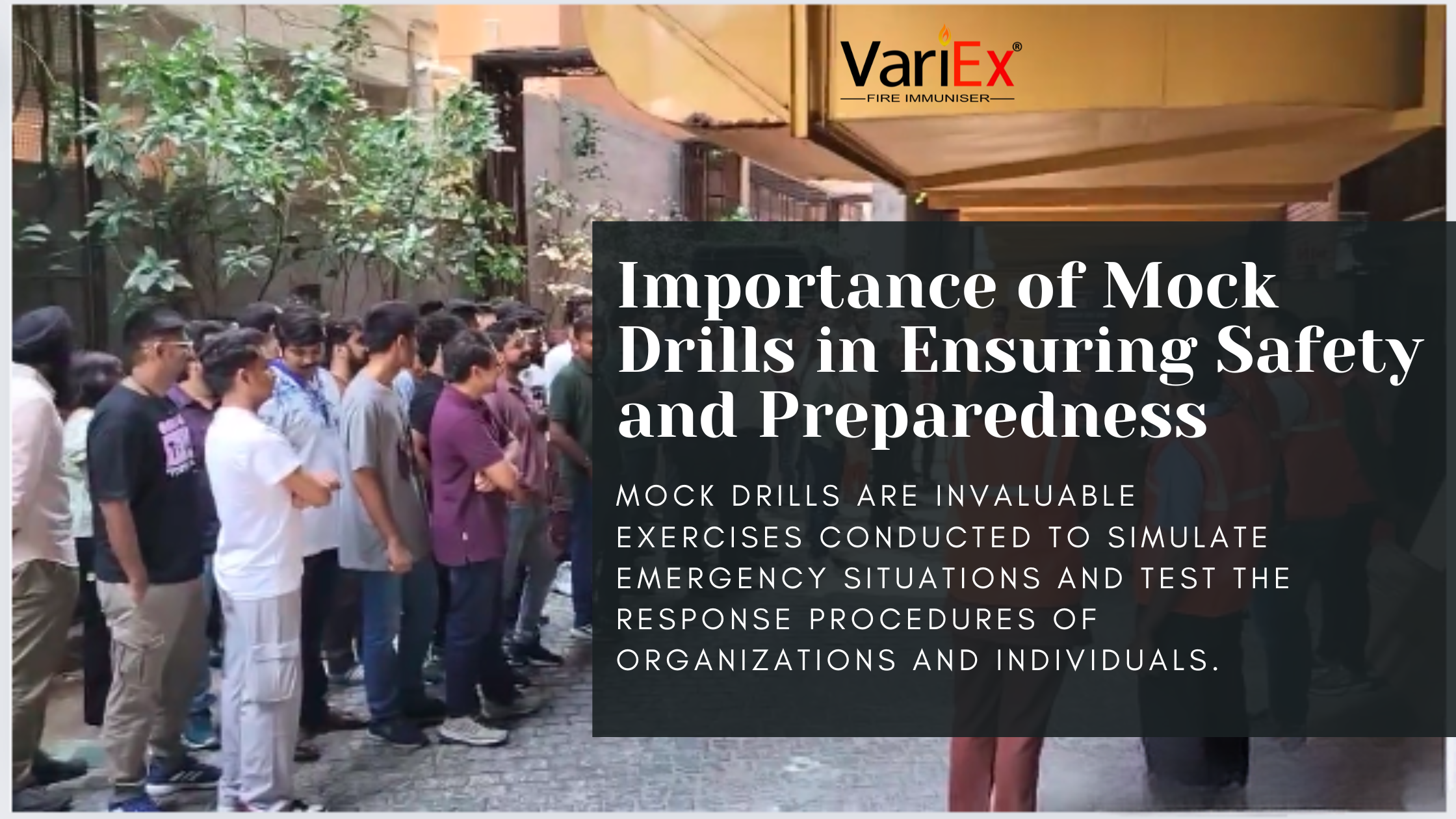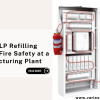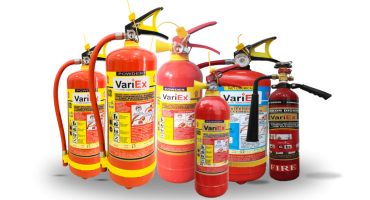![]()
Fire Immuniser
+91-7829629111
Email: info@variex.in
Varistor Technologies Pvt. Ltd.
Block-1, First Floor, Ardente Office One, Hoodi Circle, ITPL Main Road, Bengaluru, Karnataka 560048, IN
Importance of Mock Drills in Ensuring Safety and Preparedness
Mock drills are invaluable exercises conducted to simulate emergency situations and test the response procedures of organizations and individuals. These drills play a crucial role in various contexts, from workplace safety to disaster preparedness, by allowing participants to practice their roles and familiarize themselves with emergency protocols. Here’s why mock drills are important.
1. Preparedness Testing:
Mock drills simulate real-life emergencies, providing an opportunity to test the effectiveness of emergency plans and procedures. They allow organizations to identify strengths and weaknesses in their response strategies without the pressure and consequences of an actual emergency.
2. Skill Development:
Participants in mock drills gain practical experience in handling emergencies. This includes evacuation procedures, first aid administration, use of emergency equipment, and coordination with emergency services. Regular drills enhance these skills and improve response times during actual emergencies.
3. Building Confidence:
Familiarity with emergency procedures boosts confidence among employees, students, or community members. Knowing what to do and how to do it reduces panic and ensures a more orderly response, potentially saving lives and minimizing damage.
4. Effective Communication:
Communication is critical during emergencies. Mock drills facilitate practice in effective communication channels, ensuring that messages are clear, concise, and reach the intended recipients promptly. This reduces confusion and improves coordination among responders.
5. Compliance and Regulatory Requirements:
Many industries and institutions are legally required to conduct regular emergency drills to comply with safety regulations and standards. Mock drills help organizations meet these requirements and demonstrate their commitment to safety to regulatory bodies.
6. Continuous Improvement:
After each mock drill, participants and organizers review the performance and identify areas that need improvement. Lessons learned from drills are used to update emergency plans, modify procedures, and enhance overall preparedness for future emergencies.
7. Enhancing Safety Culture:
Regular drills contribute to fostering a culture of safety within organizations and communities. When safety practices become ingrained through repeated drills, individuals are more likely to prioritize safety in their daily activities, leading to a safer environment overall.
8. Risk Mitigation:
By identifying potential hazards and vulnerabilities during drills, organizations can take proactive measures to mitigate risks before they escalate into real emergencies. This proactive approach minimizes the impact of emergencies and enhances overall resilience.
9. Realistic Scenario Simulation:
Mock drills aim to replicate real emergencies as closely as possible, providing participants with a realistic experience that prepares them mentally and physically for actual crisis situations. This realism ensures that responses are not only practiced but also adaptive to dynamic situations.
10. Community Engagement and Support:
In addition to organizational benefits, community-wide drills foster collaboration among different stakeholders, including emergency responders, local authorities, and residents. This collaborative effort strengthens community resilience and reinforces the importance of preparedness at all levels.
In conclusion, mock drills are not just routine exercises but essential tools for enhancing safety, preparedness, and resilience. By investing time and resources into conducting regular drills, organizations and communities can significantly improve their ability to respond effectively to emergencies and protect lives and assets.
Frequently Asked Questions
A mock drill is a simulated exercise conducted to practice emergency response procedures in a controlled environment. It mimics real-life scenarios to test the preparedness of organizations and individuals in handling emergencies.
Mock drills are important because they allow participants to practice emergency procedures, test response plans, identify gaps in preparedness, and improve coordination among responders. They also build confidence, enhance communication skills, and ensure compliance with safety regulations.
Mock drills are typically conducted by organizations, including businesses, schools, hospitals, government agencies, and communities. Emergency services such as fire departments, police, and medical teams often participate to simulate a coordinated response.
Mock drills can simulate various emergencies, such as fires, natural disasters (earthquakes, floods), chemical spills, terrorist attacks, medical emergencies, and workplace accidents. The type of drill depends on the specific risks and hazards relevant to the organization or community.
The frequency of mock drills depends on the organization's risk profile, industry regulations, and local requirements. Typically, organizations conduct drills annually or semi-annually, with more frequent drills for high-risk environments or newly implemented procedures.
Final Say
At VariEx.in and VariexOnline.com, we specialize in supplying and installing top-quality fire fighting systems and equipment. From fire extinguishers to advanced suppression systems, we offer comprehensive solutions tailored to your needs. Our experienced team ensures precise installation and maintenance for optimal safety.
Trust VariEx for reliable fire protection. Contact us online or call 7829629111 to learn more.










